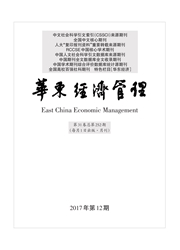

 中文摘要:
中文摘要:
文章分析了知识共享主体间博弈的过程,旨在为企业战略联盟中知识共享策略提供依据。文中引入企业知识转化为商业价值的能力、知识存储量、私有知识、共享知识及其转化为商业价值的弹性系数,构建联盟共享知识的博弈模型并进行分析。研究认为:联盟知识共享水平受成员个数、知识存储量、私有知识和共享知识转化为商业价值的弹性影响,而不受企业技术水平影响;领导者集中决策将有助提高联盟知识共享水平;知识存储差距过大的非对称企业结盟,联盟知识共享博弈很可能会转化为智猪博弈,但知识共享总量要大于二者知识存储差距不大时的情况。因此,为提高联盟知识共享水平,企业在组成联盟时,应考虑到以上因素对知识共享决策的影响
 英文摘要:
英文摘要:
Knowledge sharing is crucial for strategic alliances to achieve the goals. However there are always conflicts about knowledge sharing. To study this issue, this paper brings the firms' ability of changing knowledge into commercial value, knowledge storage, private and shared knowledge into a game model of alliance knowledge sharing. The equilibrium solution is explored and analyzed to provide advices for firms' knowledge sharing decisions. The results indicate that : the knowledge sharing level is only aftected by number of members, knowledge storage and the elasticity of changing private or shared knowledge into commercial value, but not the firm' s ability; the alliance knowledge sharing level will be improved if there is a leader who can make decisions for the members ; the game of two asymmetric firms with a wide gap of knowledge storage will turn into boxed pigs game, and knowledge sharing level is higher than otherwise. Therefore, the enterprises should take account of those factors listed above to improve the ability of alliance knowledge sharing at the initial period of alliance.
 同期刊论文项目
同期刊论文项目
 同项目期刊论文
同项目期刊论文
 期刊信息
期刊信息
